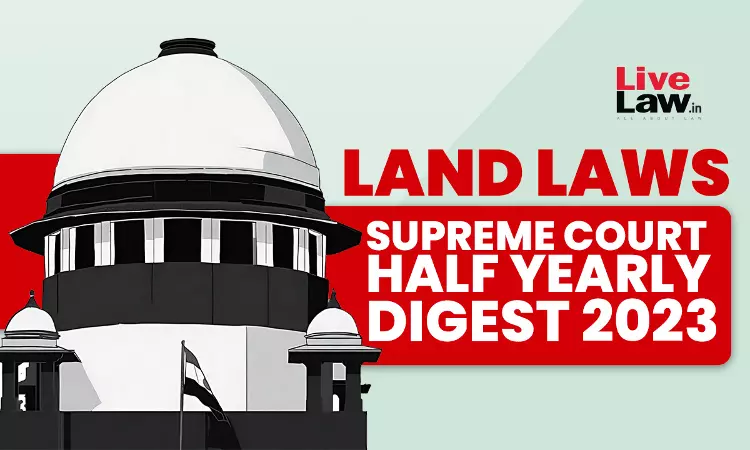- Home
- /
- Top Stories
- /
- Supreme Court Half Yearly Digest...
Supreme Court Half Yearly Digest 2023- Land Laws
LIVELAW NEWS NETWORK
27 Nov 2023 7:16 PM IST
Constitution of India, 1950; Article 254 - The Tamil Nadu Highways Act 2001 cannot be invalidated on the ground that is provisions are at variance from the Right to Fair Compensation and Transparency in Land Acquisition; Rehabilitation and Resettlement Act, 2013. Since the Tamil Nadu Act has received the assent of the President under Article 254(2) of the Constitution of India, there is no...
Next Story



